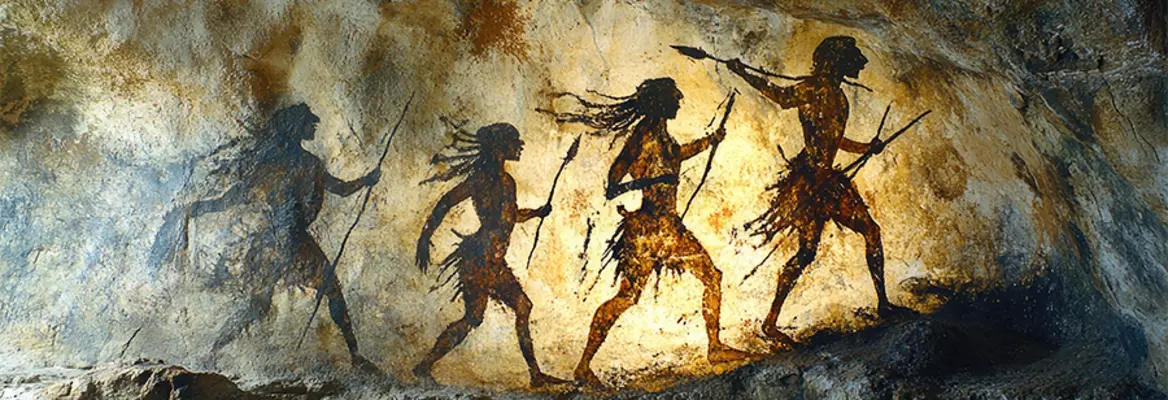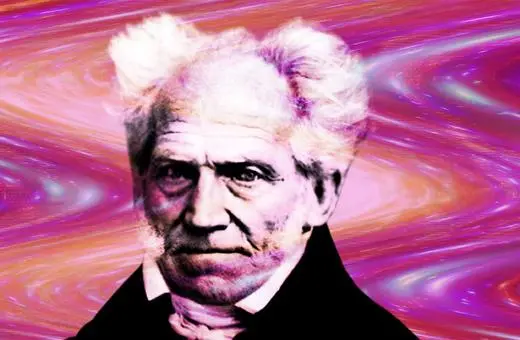The mind that helped hunter-gatherers to survive could be causing modern society’s downfall. University of Oxford anthropologist, Harvey Whitehouse, argues that the same ancient psychology that once scaled up human cooperation now risks tearing our world apart. However, if we can harness the primal forces of conformism, religiosity, and tribalism, rather than erasing them, we might just be able to rewrite our future.
(Based on abridged text from the Epilogue of Inheritance: The Evolutionary Origins of the Modern World, by Harvey Whitehouse)
In March 2022, psychology students at the University of Melbourne helped me strap on a virtual reality headset as part of an experiment they had designed to evoke feelings of ‘awe’ in the lab. As soon as they pressed the start button, I found myself surrounded by other astronauts, gazing through the window of the International Space Station, travelling around 17,500 miles per hour, 250 miles or so above the surface of the earth. At this speed it should have been possible to travel to the moon and back in a single day. Instead, we were circling our home planet. As I gazed upon the scene, the sun suddenly emerged in a burst of light beyond the curved horizon of the earth, like a white diamond. I involuntarily gasped in amazement.
___
The human mind is capable of appreciating that the world and its inhabitants are products of history.
___
Seeing the world from space, albeit through a virtual reality headset, puts things into perspective. Viewing our planet from afar makes one realize how small it is, how vulnerable to destruction. It becomes easier to appreciate that humankind, for all its seeming diversity, is a single species sharing its home with countless others. And it becomes easier to understand the specialness of humans: that we are the only species on earth capable of understanding what we are looking at from outer space through a VR headset.
The human mind is capable not only of recognizing earth from afar but also of appreciating that the world and its inhabitants are products of history. Even before we understood the basics of plate tectonics or evolution by natural selection, humankind reflected on the question of origins – how we got here and where it is all leading. We can now visualize these processes based on vast amounts of archaeological and historical data at the click of a button on the internet. Anyone who wants to observe the world’s civilizations rise and fall on a map of the world – racing through the millennia one year at a time over a period of 200,000 years – can now do so on YouTube in approximately twenty minutes. This technology is the outcome of our cultural inheritance from past generations and the countless innovations of past civilizations that led from stone age tools to computer chips. But it is also the outcome of our evolved psychology which allows us to relate information on a screen to processes unfolding over many millennia across an entire planet. Both gifts were bequeathed to us from our ancestors and form part of our collective inheritance.






















Join the conversation